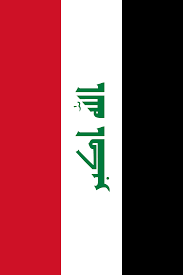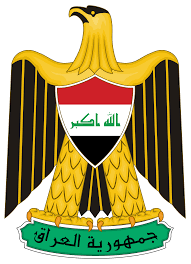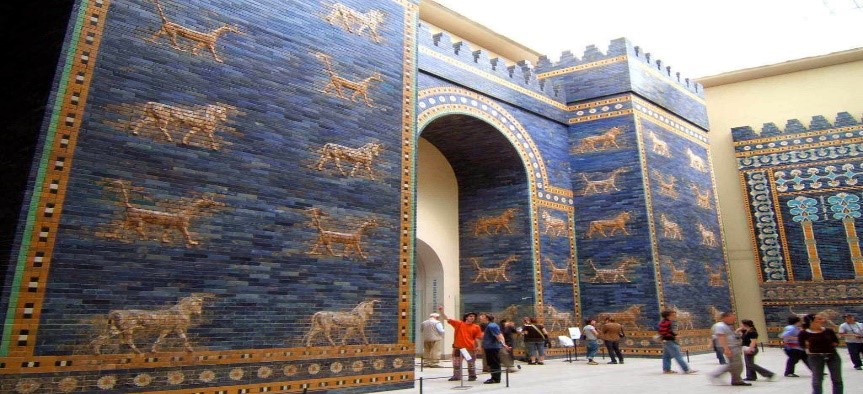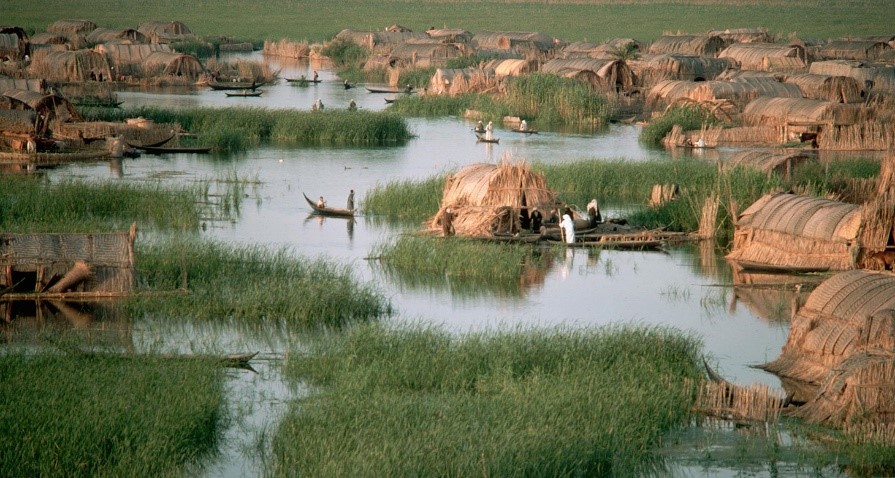About Iraq

National Anthem
My homeland, My homeland
Glory and beauty, Sublimity and splendor
Are in your hills, Are in your hills
Life and deliverance, Pleasure and hope
Are in your air, Are in your Air
Will I see you? Will I see you?
Safe and comforted, Sound and honored
Will I see you in your eminence?
Reaching to the stars, Reaching to the stars
My homeland, My homeland
My homeland, My homeland
The youth will not tire, 'till your independence
Or they die
We will drink from death
And will not be to our enemies
Like slaves, Like slaves
We do not want, We do not want
An eternal humiliation
Nor a miserable life
We do not want
But we will bring back
Our storied glory, Our storied glory
My homeland, My homeland
The sword and the pen
Not the talk nor the quarrel
Are our symbols, Are our symbols
Our glory and our covenant
And a duty to be faithful
Moves us, moves us
Our glory, Our glory
Is an honorable cause
And a waving standard
O, behold you
In your eminence
Victorious over your enemies
Victorious over your enemies
My homeland, My homeland

Mesopotamia is located in the southwestern part of the continent of Asia between the Anatolian plateau to the north and the Arabian Gulf to the south, where the Tigris and Euphrates rivers
Iraq (formally: Republic of Iraq) and (in Kurdish: Kammmari Iraq) is a federal parliamentary republic according to the Constitution of Iraq. It is composed of 18 official governorates, 19 de facto governorates (Halabja governorate), capital Baghdad, and Iraq is one of the West Asian countries bordering the Gulf Arabi. It is bordered to the south by Kuwait and Saudi Arabia, to the north by Turkey, to the west by Syria and Jordan and from the east by Iran. It is a member of the League of Arab States, the Organization of the Islamic Conference and OPEC. Most of the area that is now called Iraq is Mesopotamia, Beth Nahrin in Aramaic, and Greek (εεσοοοταμία). It contains the first cultural centers in the world that included the area between the Tigris and Euphrates rivers, This civilization, which was occupied by Mesopotamia to Syria and Persia and to the south-east Anatolia region of Turkey now, and found the effects of Sumeria in the State of Kuwait and Bahrain, Bahrain and Ahwaz. Mesopotamia had an opening and connection to ancient civilizations in Egypt and India. Many countries and civilizations, including Sumerian, Babylonian, Chaldean, Assyrian, Medidian, Seleucid, and the Parthian Empire, the Roman Empire, the Sassanids, the Mannera, the Caliphate, the Umayyad Empire, The Iraqi state, then the British Mandate, then the Kingdom of Iraq, then the Republic, then the Orha Authority (Iraq Reconstruction, Coalition Provisional Authority, Iraqi Interim Government, and then the Federal Parliamentary Republic in Iraq.
The population of the Republic of Iraq in 2016 is estimated at 37,547,686 people, and the percentage of Arabs from 75% to 80% of the Iraqi people, and Kurds to 15% of the people, while the remaining (5% - 10%) are Assyrians, Turkmen and other minorities The majority of the population of Iraq is Muslim and reaches 95% of the population. There is controversy over the proportion of Shiites and Sunnis in the country. Both communities claim to constitute the numerical majority, without a general population census and under international supervision. International bodies have a similar weight and balanced .. Religious minorities reach 5% of the population,
Most of them are Syriac Christians and there are other religions, such as Mandyism, Yezidi, Judaism, Jirassani, and Baha'i. The religious communities in Iraq are Shiite Arab, Sunni Arab, Kurdish, Turkoman, Chaldean, Assyrian, Syriac, Fili Kurds, Yazidis, Shabak, Jirasani, Jahdis, Iraq Circassians, Armenians of Iraq, .
Iraq is a country of great diversity and conflict; from the mountains and valleys in northern Iraq, especially in the Kurdistan region, to the hills in the series of hills Hamrin, and easy sedimentary fertile between the Tigris and Euphrates to arid deserts such as the Arab desert and the desert of the Levant, Iraq also contains the Western plateau desert In the west, and on two important rivers are the Tigris and the Euphrates, on whose banks arose the first civilizations, and the presence of natural marshes in southern Iraq, which is an environment for animals not found elsewhere in the world, the most famous Hor Hweiza and donkey hole. There are industrial lakes such as Tharithar, Razazah and others, and natural lakes such as Sawa Lake in the desert of Samawah desert in Muthanna province.
Iraq, the land of the birth of the prophet Abraham, and the land of many prophets, such as Quneus, Hezekel, Daniel, Azir, Nahum and Hanina (Hanin in Arabic), Adam, Noah and Houd, Saleh, Imam al-Mahdi, Imam Abdul Qadir al-Jilani, the great Imam Abu Hanifa al-Nu'man, and many of the mausoleums of the children of imams in the Shiites. And companions like Salman al-Farsi, and followers
Geographically, the Arabian Gulf is the only maritime port of Iraq on the world, with the length of the coast of Iraq about 58 km, and the port of Umm Qasr in Basra, one of the most important Iraqi ports overlooking the Gulf. The Tigris and Euphrates rivers pass from northern Iraq to the south, which were the basis of the first civilization centers in the world on Mesopotamia, which have been in Iraq throughout history and for 8000 years
By the Akkadis, Sumerians, Assyrians, and Babylonians. Among the products produced by the Mesopotamian civilization is the invention of crafts by the Sumerians and the enactment of the first written laws in the history of mankind, known in historical sources as the law of Hammurabi. It is likely that Iraq had the first museum in the world, namely the Nagaldi-Nana Museum, , Dating back to 530 BC in Oor in the province of Dhi Qar.
Most modern Iraqi borders were demarcated in 1920 by the League of Nations when the Ottoman Empire was divided under the Treaty of Sevres. And placed Iraq under the authority of the United Kingdom in the so-called British mandate in Mesopotamia. A royal regime was established in 1921, and the Kingdom of Iraq gained independence from the United Kingdom in 1932. In 1958, the monarchy was overthrown and the Republic of Iraq was established The Ba'ath Socialist Party dominated Iraq from 1968 to 2003. After the invasion of Iraq by the United States and its allies in 2003, Saddam Hussein's Baath party was removed from power and parliamentary elections were held in 2005. The US presence in Iraq ended in 2011, but the Iraqi insurgency continued and intensified after the entry of terrorists from Syria because of the Syrian crisis. 450 US troops were deployed in Iraq on June 10, 2015 After the April 2003 invasion of the Iraqi state, Prime Minister Haider al-Abadi sought to end it and adopt efficiency instead. Several reforms have been carried out in the Iraqi state before him, and the Iraqi state still has much to do with reform.
Most important cultural landmarks in Iraq

Babylonian City of Archeology

THE INDUCED
